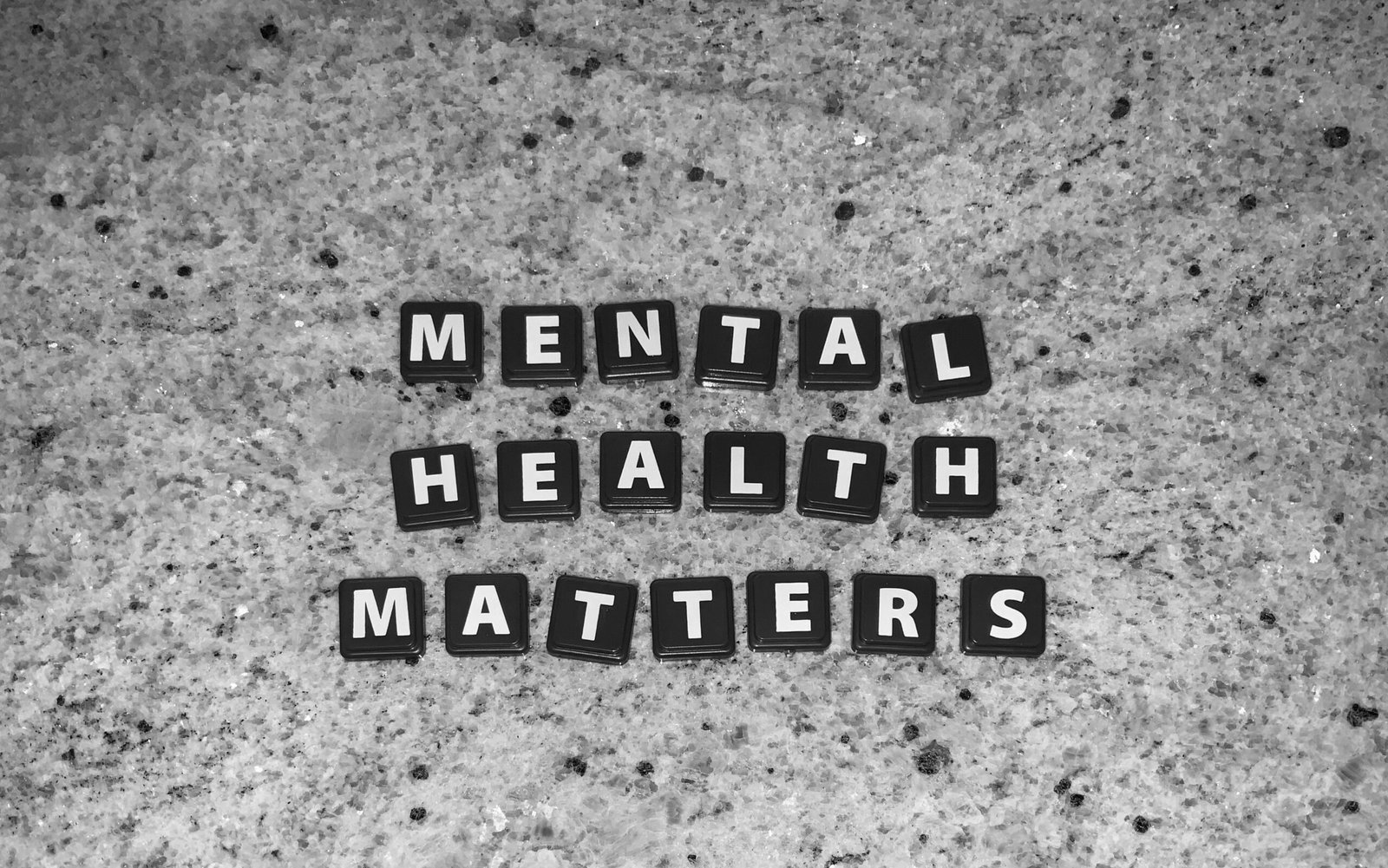If you have ever wondered how you can support someone who is going through a tough time with their mental health, you are not alone. It can be challenging to know what to say or do, but your presence and understanding can make a significant difference. This article will explore practical ways you can provide support, offer a listening ear, and show empathy without judgment. Together, we can create a safe and nurturing environment for those struggling with their mental health.

Understanding Mental Health
Understanding mental health is essential when it comes to supporting someone who is struggling. Mental health refers to a person’s emotional, psychological, and social well-being. It affects how we think, feel, and act, and it also influences how we handle stress, relate to others, and make choices. By familiarizing yourself with the fundamentals of mental health, you can better comprehend and empathize with the challenges your loved ones may be facing.
Recognizing the Signs
When it comes to supporting someone with mental health issues, recognizing the signs is crucial. Changes in behavior, such as increased irritability, anger outbursts, or uncharacteristic aggression, may indicate underlying mental health concerns. Persistent sadness, mood swings, or feelings of hopelessness may also be red flags. Another sign to watch out for is withdrawal from social activities. If your loved one starts avoiding gatherings that they once enjoyed or isolates themselves, they may be struggling mentally. By being vigilant and observant, you can identify these signs and offer the necessary support.
Changes in behavior
Mental health challenges can often manifest through changes in behavior. Keep an eye out for alterations in your loved one’s daily routines, habits, or interactions. If they suddenly become more withdrawn, experience difficulty concentrating, or display an increase in anxious behavior, it may indicate a need for support. Being attentive to these changes can help you intervene early and provide them with the assistance they require.
Persistent sadness or mood swings
If an individual is consistently experiencing lingering feelings of sadness or frequent mood swings, it may be indicative of an underlying mental health issue. They may exhibit prolonged periods of sadness, tearfulness, or emotional instability. Recognizing these emotions and understanding that they may be related to mental health struggles is essential in order to provide the right kind of support.
Withdrawal from social activities
Mental health challenges can often lead to a desire to retreat from social activities. Your loved one may start declining invitations, making excuses to avoid gatherings, or become increasingly distant from friends and family. If you notice this withdrawal, it’s crucial to acknowledge their need for space while also expressing your ongoing support and willingness to be there when they are ready to engage again.
Creating a Supportive Environment
Creating a supportive environment for someone struggling with mental health concerns can make a significant impact on their well-being. Here are some ways you can help:
Educate yourself about mental health
One of the first steps toward creating a supportive environment is to educate yourself about mental health. By familiarizing yourself with different mental health conditions and understanding common symptoms, you will be better equipped to offer relevant help and support. Seek out credible resources, read books, and attend workshops or seminars to gain a deeper understanding of mental health.
Offer empathetic and non-judgmental communication
When supporting someone with mental health challenges, it’s important to cultivate empathetic and non-judgmental communication. This means actively listening to their concerns, validating their experiences, and avoiding any form of blame or criticism. Providing a safe and open space for them to express themselves can be immensely beneficial and reassuring.
Provide a safe and comfortable space
Creating a safe and comfortable space for open communication is vital when supporting someone with mental health issues. Ensure that they feel physically and emotionally safe in your presence. You can achieve this by allowing them to share their thoughts and feelings without fear of judgment or repercussions. By fostering a welcoming environment, you can facilitate their journey toward healing and recovery.
Encouraging Professional Help
While offering support from loved ones is invaluable, encouraging professional help is often crucial to address mental health concerns effectively. Here’s how you can play a role in guiding them toward seeking professional assistance:
Suggest seeking a mental health professional
Encourage your loved one to consider reaching out to a mental health professional who can provide specialized guidance and support. Let them know that seeking help from a trained professional is a sign of strength, not weakness. Offer reassurance and remind them that mental health professionals are equipped to provide valuable tools and interventions to improve their well-being.
Provide resources and information
Assist your loved ones by providing them with relevant resources and information about mental health professionals. Share reputable websites, helpline numbers, or contact information for therapists and psychiatrists in your area. By making this process easier for them, you can help alleviate any overwhelming feelings they may have about seeking professional help.
Assist in making appointments
Sometimes, the process of making appointments and accessing mental health services can feel daunting. Offer to assist your loved one by making phone calls, researching available options, or accompanying them to appointments if they feel comfortable. This support can make a significant difference in helping them take the necessary steps toward seeking professional help.

Offering Emotional Support
Emotional support is a vital component in helping someone navigate their mental health challenges. Here are some ways you can provide this support:
Listen actively and attentively
When someone is struggling with their mental health, active and attentive listening is key. Give them your full presence by maintaining eye contact, using body language that signals you are engaged, and refraining from interrupting or offering unsolicited advice. Through active listening, you can demonstrate your commitment to understanding their experiences and emotions.
Express your concern and understanding
Let your loved one know that you genuinely care about their well-being by expressing your concern and understanding. Use empathetic statements such as “I’m here for you,” “I understand this must be difficult,” or “I’m here to support you through this.” This reassurance can provide them with comfort during challenging times.
Avoid minimizing or invalidating their experiences
It’s important to avoid minimizing or invalidating your loved one’s experiences. Refrain from telling them to “snap out of it” or dismissing their feelings as “just a phase.” Instead, acknowledge their struggles and validate their emotions. Letting them know that their experiences are valid and valued fosters an atmosphere of trust and support.
Promoting Physical Well-being
Physical well-being is closely intertwined with mental health. Encouraging healthy habits can greatly contribute to someone’s overall well-being. Here are some ways to promote physical well-being:
Encourage exercise and physical activity
Regular exercise has been shown to have a positive impact on mental health. Encourage your loved one to engage in physical activities they enjoy, such as walking, jogging, or dancing. Exercise not only releases endorphins, which improve mood, but it can also serve as a distraction from negative thoughts and provide a sense of accomplishment.
Assist in maintaining a balanced diet
A balanced diet plays a crucial role in supporting mental health. Help your loved one make healthy food choices by providing nutritious meal options or accompanying them to the grocery store. A diet rich in fruits, vegetables, whole grains, and lean proteins can contribute to improved overall well-being.
Ensure regular sleep patterns
Sleep plays a vital role in mental health and overall functioning. Encourage your loved one to establish regular sleep patterns and practice good sleep hygiene. This includes maintaining a consistent sleep schedule, creating a restful sleep environment, and avoiding stimulants like caffeine at night. Quality sleep can positively impact mood, cognition, and overall mental well-being.

Assisting with Daily Activities
When someone is struggling with mental health challenges, even completing daily activities can become overwhelming. Here’s how you can assist:
Help with practical tasks
Offer your assistance with practical tasks that may feel overwhelming to your loved one. This can include household chores, cooking, running errands, or organizing their living space. By lightening their load, you can provide some relief and create a more manageable environment for them.
Provide encouragement and motivation
Motivation can be challenging for individuals experiencing mental health struggles. Offer your loved one encouragement and support to help them stay motivated. Praise their achievements, no matter how small, and remind them of their strengths and capabilities. Your belief in them can make a significant difference in their journey toward recovery.
Support in keeping a routine
Establishing and maintaining a routine can provide stability and a sense of predictability for someone struggling with their mental health. Help your loved one create a daily schedule that incorporates self-care activities, work or school commitments, social interactions, and relaxation time. By providing guidance and support, you can assist them in maintaining a structured routine.
Reducing Stigma and Providing Education
Stigma surrounding mental health can create barriers to seeking help and receiving effective support. As a supportive friend or family member, you can play a vital role in challenging these stigmatizing beliefs:
Challenge stigmatizing beliefs and language
Whenever you come across stigmatizing beliefs or language about mental health, challenge and correct them. Educate others on the importance of showing empathy and compassion toward those with mental health concerns. By speaking out, you can help break down barriers and promote a more inclusive and supportive society.
Raise awareness about mental health
Increase awareness about mental health by engaging in conversations, sharing educational resources, or participating in mental health-focused events or campaigns. The more we collectively discuss mental health, the more normalized these conversations become. By promoting a culture of openness, we can inspire positive change.
Promote understanding and acceptance
Promote understanding and acceptance of mental health challenges by sharing stories of recovery and resilience. Highlight examples of individuals who have overcome similar struggles and emphasize the importance of seeking help. By normalizing the experiences of those with mental health issues, we can help reduce the isolation and shame often associated with these conditions.

Offering Peer Support
Peer support can be immensely beneficial for individuals struggling with mental health concerns. Here’s how you can facilitate this support:
Share personal stories of recovery
If you have personal experiences with mental health challenges, consider sharing your story with your loved one. Hearing about someone who has overcome similar difficulties can provide them with hope and reassurance. By sharing your journey and emphasizing the importance of seeking help, you can inspire them to take positive steps forward.
Connect them to support groups
Support groups can provide a valuable sense of community and understanding for individuals with mental health concerns. Research local support groups or online communities that cater to your loved one’s specific needs or interests. Offer to accompany them to meetings or help them navigate online spaces to connect with others facing similar challenges.
Encourage participation in community activities
Encourage your loved one to engage in community activities that align with their interests and passions. This can include volunteering, joining clubs or sports teams, or attending local events. By participating in these activities, they can form connections, build a support network, and experience a greater sense of belonging.
Taking Care of Yourself
Supporting someone with mental health challenges can be emotionally demanding, so it’s essential to prioritize your own well-being. Here’s how:
Set healthy boundaries
Establishing healthy boundaries is crucial when supporting someone with mental health concerns. Remember that you cannot pour from an empty cup, so make sure to prioritize your own needs and well-being. Communicate your boundaries clearly and respectfully, and understand that it is okay to take a step back when necessary.
Seek support for yourself
Supporting others can be challenging, so it’s important to seek support for yourself. Reach out to trusted friends, family members, or support groups to share your feelings and experiences. Talking to others who have been through similar situations can provide validation, guidance, and a sense of relief.
Practice self-care
Taking care of your own mental health is essential when supporting someone else. Engage in regular self-care activities that bring you joy and relaxation. Whether it’s practicing mindfulness, engaging in hobbies, or spending time in nature, prioritize activities that recharge and rejuvenate you.
By following these guidelines, you can offer invaluable support to someone struggling with their mental health. Remember that your presence, care, and understanding can make a world of difference on their journey to recovery and well-being.

